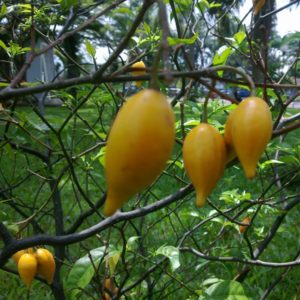
Studies into Ibogaine, the main psychoactive alkaloid derived from this plant have been under extensive research for at least the past 100 years.
But it wasn’t until 1962 that Howard Lotsof discovered that Ibogaine is to be an effective treatment for drug addiction.
Ibogaine has the ability to interrupt substance abuse disorders
Contents
Addiction treatment discovery
In 1985, a series of patents related to this addiction treatments potential was granted to Howard Lotsof. It seemed that early data collected from anecdotal reports indicated Ibogaine worked for addiction recovery.
By completely blocking some withdrawal symptoms and reducing cravings, this natural compound can be used to treat a wide rang of substance addictions.
Ibogaine can be used to treat the following:
- PTSD
- Anxiety
- Opioids and opiate addiction
- Alcoholism
- Addiction to prescription painkiller
Is Ibogaine Legal?
The legal status of this medicine varies around the globe. Some countries may acknowledge its medicinal values, with others see its addictive qualities as a threat.
Ibogaine is a Schedule I drug in the United States. Schedule I drugs are considered to have no medical value and a high potential for abuse. This makes it illegal to carry, posses or obtain this drug in any way.
Switzerland, Sweden and Belgium have also placed Ibogaine in the same controlled legal status as the US. Outside of these nations, the rest of the world has not classified legal status. Or may allow use for religious or experimental use.
Do not try to obtain, sell or use Ibogaine without knowing your local laws first. Ignorance is not a valid an excuse under the law, breaking the law may result in jail time.
Should You Use Ibogaine to Treat Addiction
Although it has been a very successful tool for addiction and recovery, there are some precautions you should be aware of. The negative side effects of Ibogaine are dangerous and in some cases may be life threatening.
Don’t use if:
- You are using medication that interact with Ibogaine
- Have impaired liver function
- Suffer from mental illness, depression, schizophrenia, Bipolar, etc,.
- Heart disease or abnormalities
- Diagnosed with HEP C
- Diagnosed with HIV
- Taking anti-psychotic and/or anti-depressants
You should be in good general health before considering such a treatment, if possible consult with your doctor first.
Interactions and Cautions
Food Interaction
When ingested, Ibogaine is partly metabolized by the “Cytochrome P450 Complex”. This can cause interaction issues when metabolized with foods that contain Bergamottin or Bergamot oil.
Examples of foods containing Bergamot are grape fruits, grape fruit juice and bergamot oranges.
Neurotoxicity
Early studies into the neurotoxicity of Ibogaine may have misleading. Research at John Hopkins originally indicated deterioration of the Cerebllar Purkinje Cells of rats dosed with Ibogaine. But the doses given where substantially higher that the common dose.
Further studies have found no evidence of toxicity in primates and mice, even when given the same damaging dose. In 1993 Neuropathological studies where able to examine its effects in humans. After examinations where preformed, it was determined that there was no damage.
Overdose
There is a risk of Ibogaine overdose, if not taken with caution. The symptoms of overdose can be serous and even life threatening if left untreated. Common symptoms of overdose are, but are not limited to the following:
- Dry mouth
- Trouble breathing
- Irregular heart beat
- Problems with muscle coordination
But in most cases, symptoms will usually diminish after 48 hours. If you or someone you know is displaying these symptoms after use, medical or professional assistance may be needed.
Deaths
Yes, taking Ibogaine can kill you, but its rare. Although, the cases of death due to its use is rare, its still enough to take notice.
Statistically, 1 out of 300 may die from Ibogaine use
These cases have resulted from interactions with other medication or heath conditions of participants. It is stress that you consult a physician first. Or only consider the use of this treatment under professional supervision.
Ibogaine Addiction Treatment Centers
Depending on where you live, you may be able to find an Ibogaine treatment center near you. Look for treatment centers that make use of this drug, located out side of the United States due to legal status.
Lucky, getting to a treatment center near you is usually just a short plan trip. These Ibogaine opiate detox centers are designed to feel more like spas.
If you live in the US, you will find the closest centers are in Mexico, Costa Rica and Canada. Cancun has a number of centers with good reviews and results. Be sure to do some investigation before deciding which treatment center is right for you.
Success Rate
When compared to modern addiction treatment, Ibogaine has a good rate of success and recovery, all around.
7 out of 10 recovering opiate addicts that have used this treatment will not relapse within a designated time frame. But there are other factors that can determine successful recovery.
Statistics have broken down data in hopes of discovering key factors that cause relapse. The problem is that there are too many variables to take into consideration. This makes it very difficult to determine what causes relapse.
What is easy to see is that determination is the key to successful recovery after treatment. It is important to realize that you are the most effective element in your recovery. Make the decision, it is you that determines the outcome, so follow through and be your own success story.
Although this treatment has proven its self, its important to see thing through.